January 23, 2019
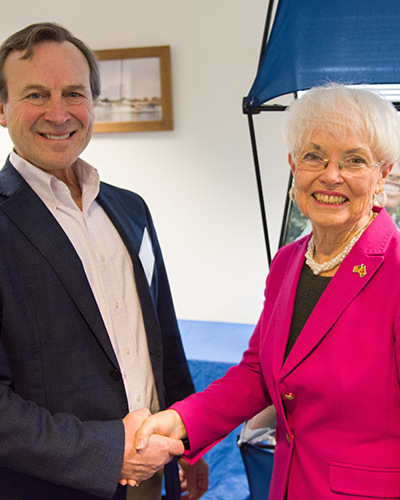
Eric Weintraub and Christopher Welsh Will Expand Telemedicine Addiction Treatments to Maryland Eastern Shore
Addiction experts at the University of Maryland School of Medicine (UMSOM) received a $212,171 grant from CareFirst to expand access to medication assisted treatment (MAT) for opioid addiction via telemedicine to patients located on Maryland’s eastern shore.
The program is managed by Eric Weintraub, MD, Associate Professor in the Department of Psychiatry, who is the Medical Director of the UMSOM’s Methadone Clinic in the University of Maryland Medical Center (UMMC) Outpatient Addiction Treatment Services and Christopher Welsh, MD, Associate Professor in the Department of Psychiatry, who is the Medical Director of the UMMC Substance Abuse Consultation Service and Medical Director of the UMMC Outpatient Addiction Treatment Service. Dr. Weintraub and Dr. Welsh have been providing similar services in Western Maryland for the past three years in collaboration with the University of Maryland Medical System (UMMS).
Through this program Dr. Weintraub and Dr. Welsh and other faculty can prescribe buprenorphine via their telemedicine program. It involves a video consultation and collaboration with counselors and others treating the patient locally
The funding is critical as Maryland faces increasing opioid-related deaths. According to the Maryland Department of Health, there was a 14.8 percent increase in opioid-linked deaths during the first half of 2018 from 2017, a trend that has been in place for several years. (See Figure 1). The bulk of these deaths is linked to fentanyl use, a high-potency synthetic opioid.
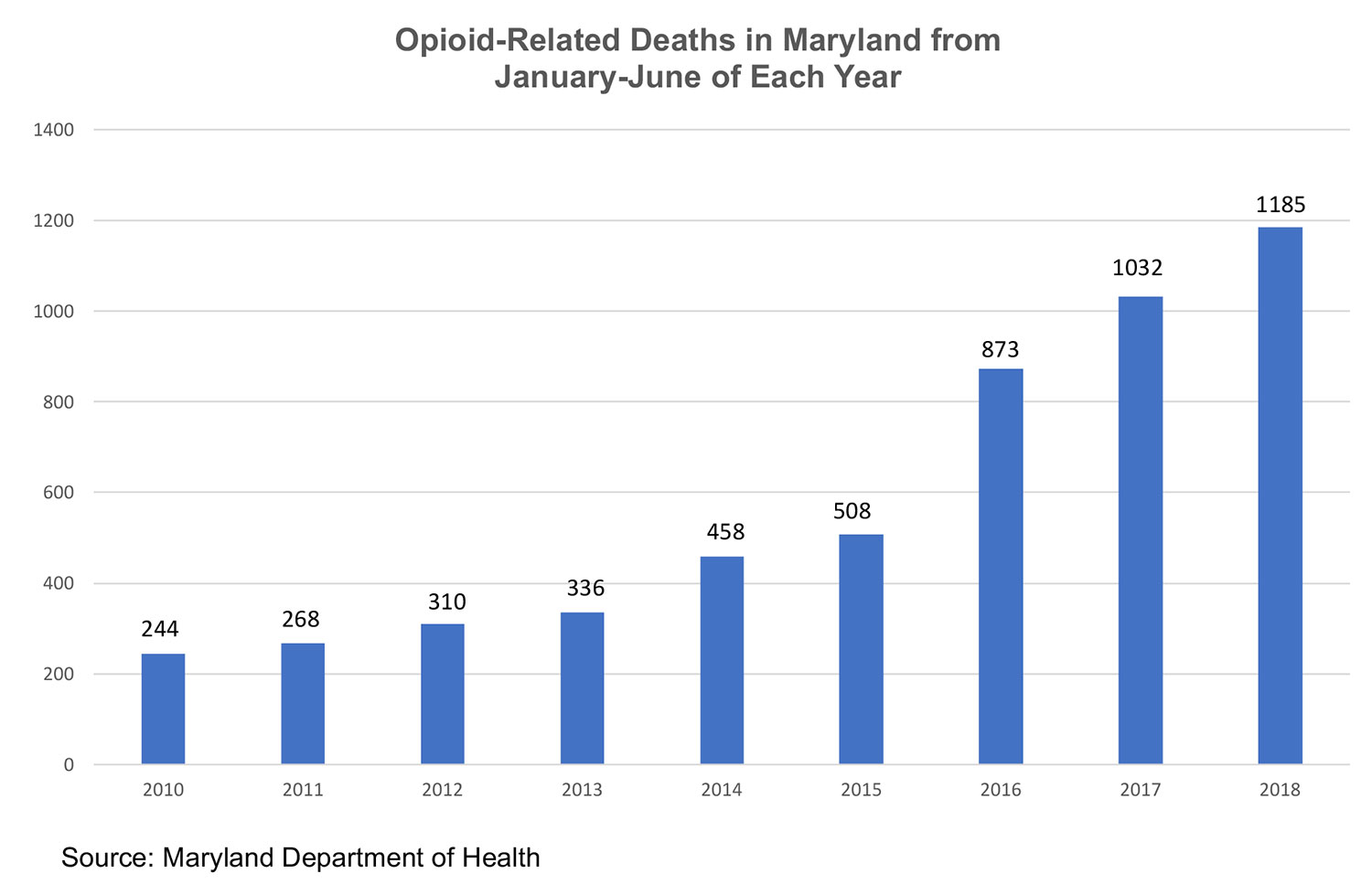
While a large portion of these deaths took place in Baltimore County and Baltimore City (636), rural counties have also experienced opioid-related deaths. Importantly, medically assisted treatment with drugs such as methadone and buprenorphine — considered the evidence-based treatment of choice for managing addiction — is not always available to those in rural areas. To address this, Dr. Weintraub and Dr. Welsh have been prescribing buprenorphine via telemedicine to reach patients in rural areas. In addition, they are a training physicians, nurse practitioners and physician’s assistants in remote areas to treat patients with opioid disorders.
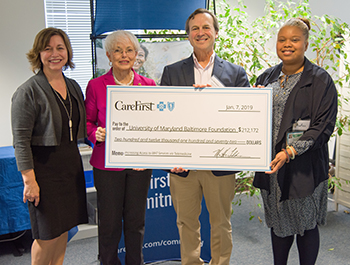
“There's a lot of stigma with the treatment of patients who are using opioids and heroin and we know that we have medications that can really help individuals and a lot of people push against us using these medicines for a variety of reasons,” said Dr. Weintraub at a Jan. 7 press conference. “But we know that they decrease overdoses by over 50 percent, and they increase social functioning and they increase medical health. What we found out is that because these medications are difficult to access we've developed a strategy to use video conferencing and telehealth to deliver these services and spread the expertise of the School of Medicine into underserved areas.”
“We were very excited that the University of Maryland School of Medicine came to us with this project because we thought that it brought services to where they needed to be with their expertise,” said Julie Wagner, VP of Community Affairs, CareFirst.
Dr. Weintraub and Welsh’s telemedicine program has been in place in Western Maryland for the last three years. With this new funding, the program is expanding further into Eastern shore counties: Dorchester, Talbot and potentially into Queen Anne’s County.
In partnership with Life Energy Wellness Clinics, counseling will be provided to substance abuse patients and if they need medications, they can be prescribed this treatment through the telemedicine program. “We got started a little bit early at the end of October and we've already treated 24 patients, I think 16 of whom are still in treatment. We just looked at the numbers. And part of the issue has been that we haven't had the capacity to expand,” said Dr. Weintraub.
“Opioid addiction continues to be a growing problem, particularly in rural areas of our state. Dr. Weintraub and Dr. Welsh have truly advanced the way we can address this issue and treat those in need through telemedicine. The generous funding from CareFirst will help expand a program that has already been successful in other parts of the state,” said E. Albert Reece, E. Albert Reece, MD, PhD, MBA, Executive Vice President for Medical Affairs, UM Baltimore, and the John Z. and Akiko K. Bowers Distinguished Professor, and Dean, University of Maryland School of Medicine.
About the University of Maryland School of Medicine
Now in its third century, the University of Maryland School of Medicine was chartered in 1807 as the first public medical school in the United States. It continues today as one of the fastest growing, top-tier biomedical research enterprises in the world -- with 43 academic departments, centers, institutes, and programs; and a faculty of more than 3,000 physicians, scientists, and allied health professionals, including members of the National Academy of Medicine and the National Academy of Sciences, and a distinguished recipient of the Albert E. Lasker Award in Medical Research. With an operating budget of more than $1 billion, the School of Medicine works closely in partnership with the University of Maryland Medical Center and Medical System to provide research-intensive, academic and clinically-based care for more than 1.2 million patients each year. The School has over 2,500 students, residents, and fellows, and more than $530 million in extramural funding, with most of its academic departments highly ranked among all medical schools in the nation in research funding. As one of the seven professional schools that make up the University of Maryland, Baltimore campus, the School of Medicine has a total workforce of nearly 7,000 individuals. The combined School and Medical System (“University of Maryland Medicine”) has an annual budget of nearly $6 billion and an economic impact more than $15 billion on the state and local community. The School of Medicine faculty, which ranks as the 8th highest among public medical schools in research productivity, is an innovator in translational medicine, with 600 active patents and 24 start-up companies. The School works locally, nationally, and globally, with research and treatment facilities in 36 countries around the world. Visit medschool.umaryland.edu/
Learn more about the UMSOM’s addiction and treatment services:
UMMC Outpatient Addiction Treatment Services
701 W. Pratt Street
Baltimore, MD 21201
410-328-6600
Contact
Office of Public Affairs
655 West Baltimore Street
Bressler Research Building 14-002
Baltimore, Maryland 21201-1559
Contact Media Relations
(410) 706-5260
Related stories
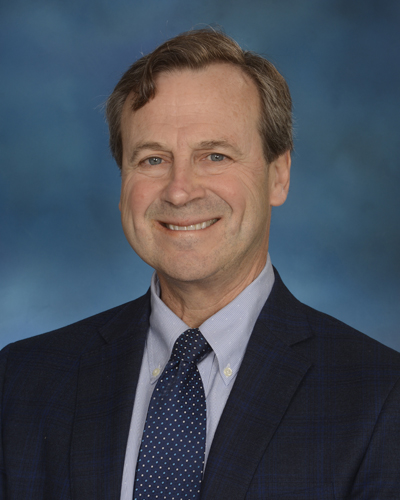
Friday, August 27, 2021
UM School of Medicine Study Finds Mobile Telemedicine Unit as Effective as Traditional Clinics to Treat Opioid Addiction in Rural Areas
Rural regions in the U.S. have been disproportionately affected by the opioid epidemic, while also having the fewest number of programs to treat opioid use disorder. In an effort to remedy this dire health issue, University of Maryland School of Medicine (UMSOM) researchers reconfigured a recreational vehicle (RV) as a telemedicine mobile treatment unit to determine whether it could provide effective screening and treatment to individuals with opioid use disorder in rural areas. Their research, published today in the Journal of the American Medical Association (JAMA) Network Open, found that the innovative approach to be as successful as traditional brick-and-mortar treatment clinics. The study also found a significant reduction in illicit opioid use among the majority of patients treated on the mobile unit, as well as sustained success in these patients continuing therapy to avoid relapse.

Wednesday, November 20, 2019
Dr. Eric Weintraub Recognized as "Community Star" in Conjunction with National Rural Health Day 2019 for His Opioid Disorder Treatment Work
Eric Weintraub, MD, Associate Professor of Psychiatry at the University of Maryland School of Medicine and Head of the Division of Alcohol & Drug Abuse, was named “Community Star” by the National Organization of State Offices of Rural Health
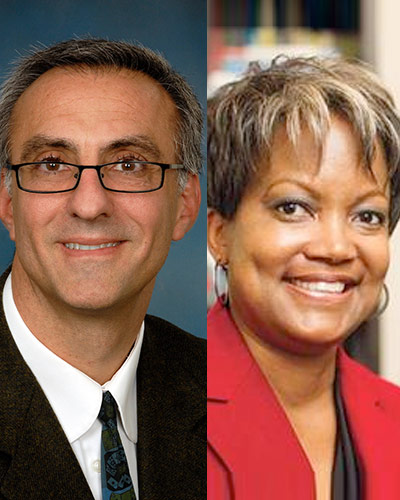
Thursday, May 16, 2019
Dr. Christopher Welsh (SOM, UMMC) and Dr. Michelle Gourdine (UMMS) have been appointed to an opioid addiction working group by Baltimore County Executive Johnny Olszewski.
Expert working group will lead public engagement effort to gather input and develop recommendations
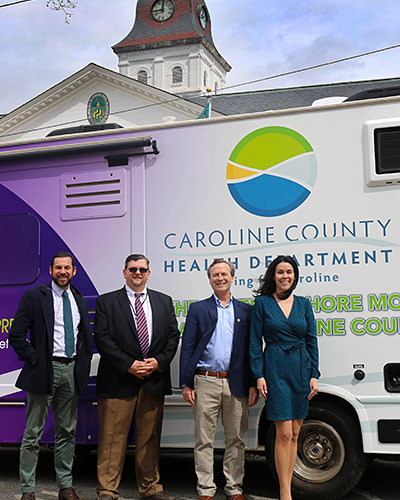
Thursday, April 04, 2019
Mobile Addiction Treatment Unit Serves Maryland Eastern Shore
Health and addiction treatment officials from the Caroline County Health Department, Maryland Department of Health, the Maryland Opioid Operational Command Center, and the University of Maryland School of Medicine (UMSOM) in Denton, MD., launched the Eastern Shore Mobile Care Collaborative (ESMCC), a mobile system designed to provide state-of-the-art treatment for opioid disorders for those in need on the Maryland Eastern shore.

Tuesday, August 21, 2018
New Wave of Complex Street Drugs Puzzles Emergency Doctors
Study May Fuel Need for More Comprehensive Drug Testing in Hospitals
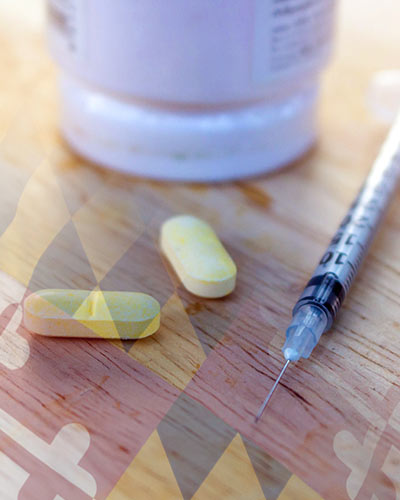
Friday, January 05, 2018
Fighting Opioid Addiction from Baltimore to Garrett County: University of Maryland School of Medicine Rises to the Challenge
The opioid epidemic has been deadly for Maryland. In 2016, more than 2000 people in the state died from overdoses; in 2017, deaths rose another 40 percent, and deaths from the powerful synthetic opioid fentanyl were up nearly 140 percent. Last year, Gov. Larry Hogan declared a state of emergency in response to the opioid epidemic, saying the state needs an “all-hands-on-deck approach.”
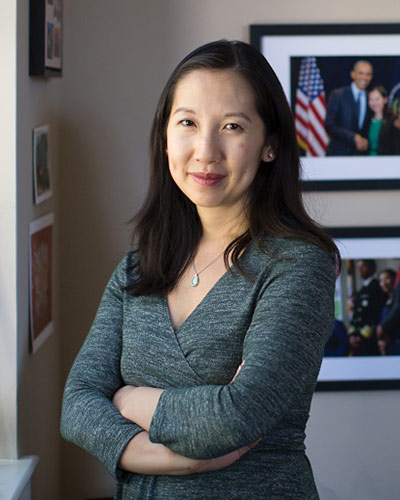
Friday, April 29, 2016
Baltimore City Health Commissioner Speaks at University of Maryland School of Medicine Addiction Conference
Baltimore City Health Commissioner Leana Wen and other experts recently addressed ways to decrease the epidemic of opioid overdose deaths at a conference on mental health and addiction.
